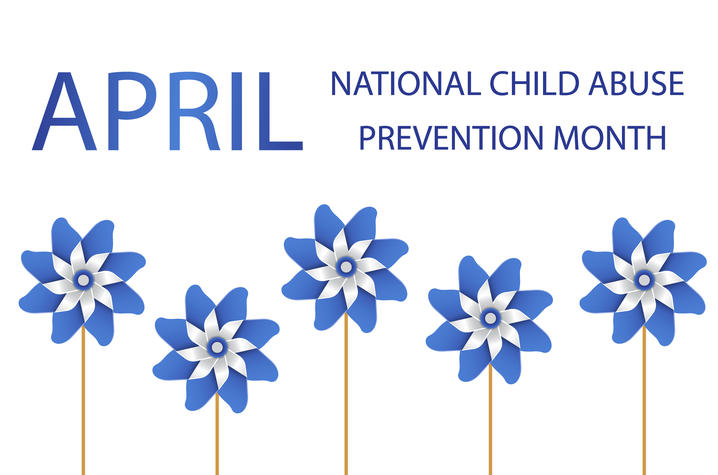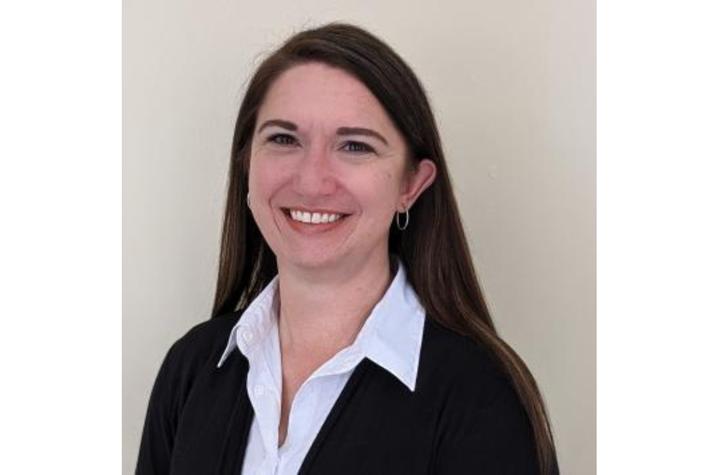Preventing child abuse: Know the signs, take action
In recognition of National Child Abuse Prevention Month, the University of Kentucky Center on Trauma and Children’s Leah Riggs, Ph.D., discusses steps everyone can take to help stop child abuse and neglect.
LEXINGTON, Ky. (April 29, 2025) - Child abuse and neglect impact the behavioral, social and psychological health of children and families across the Commonwealth. In 2023, Kentucky’s rate of child abuse was 14.2 (per 1,000 children), which is almost twice the national rate of 7.4.
Abuse and neglect were reported across all genders, races and ethnicities, with 16,577 substantiated cases of child abuse and neglect impacting 14,484 children.
Understanding the prevalence of abuse is one key to preventing it. Here are steps everyone can take to help stop child abuse and neglect.
Recognize signs of abuse
Children may demonstrate signs of abuse and neglect differently than adults. Common symptoms of trauma and abuse in children include, but are not limited to:
- Intense emotional reactions: Children may exhibit extreme behaviors that are destructive, defiant, and/or aggressive or that are passive and withdrawn.
- Fear of going home: Children may express fear, anxiety, or worry when faced with going home to caregiver(s).
- Injury: Frequent, unexplained injuries to the head or body may be indicators of physical or sexual abuse (check out the TEN-4-FACES clinical decision-making tool to help identify bruising in children under four years of age that might be signs of abuse at https://faceitabuse.org/ten4rule.
- Problems at school: Children experiencing abuse may have difficulty concentrating, completing work and may be frequently absent to or tardy from school.
- Difficulty sleeping: Children may report nightmares, insomnia, bed wetting or other sleep disturbances which may impede their ability to stay awake during the day.
Take action
Everyone plays a part in preventing child abuse and neglect, whether you are a parent, caregiver, neighbor, teacher or community member. Here are a few things you can do:
- Educate yourself: Understand the risks, signs, and symptoms of abuse and how you can report concerns.
- Teach children: Help children understand they have a right to their own safety and how to seek help from safe, trusted adults.
- Report abuse: If you are concerned for the safety of a child or family, you can call (877) KY-SAFE1 (597-2331) or (800) 4-A-CHILD (422-4453)
- Regulate your emotions: Recognize if you’re feeling frustrated or angry, and use calming strategies like deep breathing to calm down and stay focused in the present, and step away from a situation if necessary to regain composure.
- Seek help: Reach out to others and seek support if you are struggling or feeling overwhelmed.
Additional resources
The University of Kentucky Center on Trauma and Children (CTAC), located in the College of Medicine Department of Psychiatry, is dedicated to the enhancement of the health and well-being of children and their families through research, practice, policy and the dissemination and implementation of evidence-based approaches. CTAC provides assessment and treatment of children and family members who have experienced traumatic events, development of evidence-based behavioral health clinical practices with children, families and adults. Visit https://ctac.uky.edu/ for more information regarding CTAC’s resources and services.
UK HealthCare is the hospitals and clinics of the University of Kentucky. But it is so much more. It is more than 10,000 dedicated health care professionals committed to providing advanced subspecialty care for the most critically injured and ill patients from the Commonwealth and beyond. It also is the home of the state’s only National Cancer Institute (NCI)-designated Comprehensive Cancer Center, a Level IV Neonatal Intensive Care Unit that cares for the tiniest and sickest newborns and the region’s only Level 1 trauma center.
As an academic research institution, we are continuously pursuing the next generation of cures, treatments, protocols and policies. Our discoveries have the potential to change what’s medically possible within our lifetimes. Our educators and thought leaders are transforming the health care landscape as our six health professions colleges teach the next generation of doctors, nurses, pharmacists and other health care professionals, spreading the highest standards of care. UK HealthCare is the power of advanced medicine committed to creating a healthier Kentucky, now and for generations to come.






